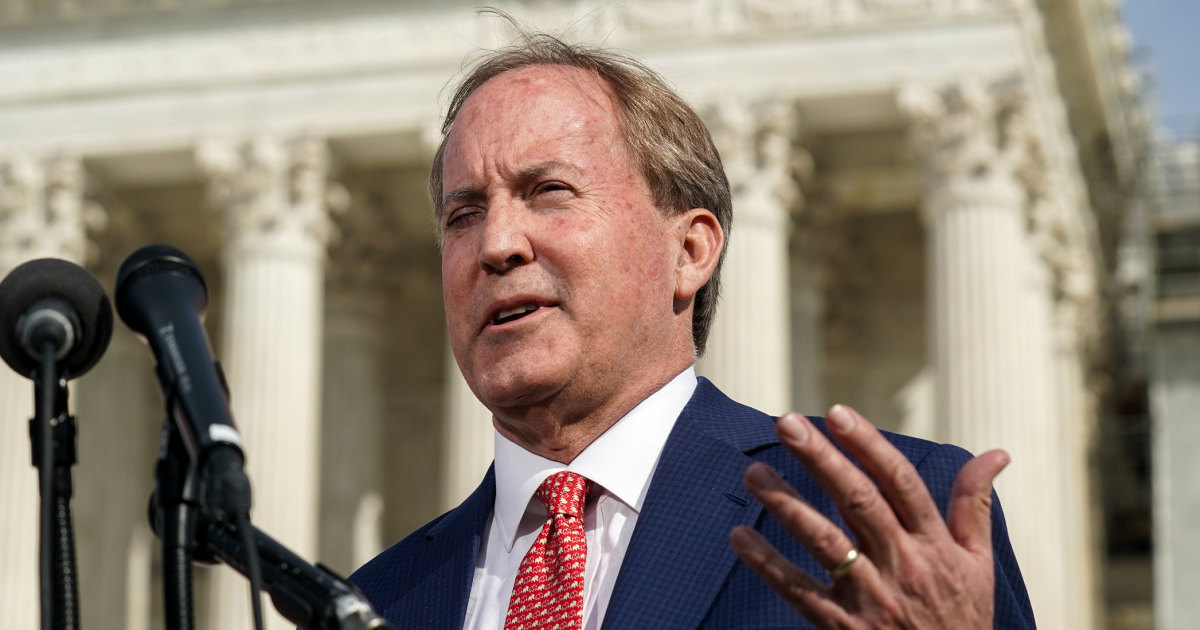Sports
Texas attorney general sues NCAA over transgender athletes competing in women’s sports

Texas Attorney General Ken Paxton is suing the NCAA, accusing the college athletic association of misleading fans by allowing transgender athletes to participate in women’s events.
The lawsuit argues that permitting athletes who were assigned male at birth to play in women’s sports confuses and tricks consumers who attend sporting events that the NCAA has advertised as restricted to female athletes.
“Texas consumers are legally entitled to spend their hard-earned dollars on the competitions that matter to them, without being misled. This Court should enjoin the NCAA from its misleading and unlawful conduct to protect Texas consumers from the NCAA’s false, deceptive, and misleading practices,” reads the lawsuit, which was filed in state district court in Lubbock.
In a press release Sunday announcing the suit, Paxton said he wanted the court to prohibit the NCAA from allowing biological males to compete in women’s sports in Texas, or to stop the NCAA from marketing events as “women’s” when transgender athletes are competing.
“The NCAA is intentionally and knowingly jeopardizing the safety and wellbeing of women by deceptively changing women’s competitions into co-ed competitions,” Paxton said in a statement. “When people watch a women’s volleyball game, for example, they expect to see women playing against other women — not biological males pretending to be something they are not. Radical ‘gender theory’ has no place in college sports.”
His statement appeared to refer to the San Jose State University women’s volleyball team, which earlier this year was boycotted by a handful of opponents who refused to compete because they said San Jose State had a transgender player on the team. A federal court last month rejected a request to block the team member from playing in the Mountain West Conference tournament.
The NCAA declined to comment Monday on the allegations in Paxton’s legal complaint and reiterated its commitment to enforcing Title IX, the landmark federal legislation that prohibits sex-based discrimination in education programs and activities.
“College sports are the premier stage for women’s sports in America, and while the NCAA does not comment on pending litigation, the Association and its members will continue to promote Title IX, make unprecedented investments in women’s sports and ensure fair competition in all NCAA championships,” NCAA Director of Communications Michelle Brutlag Hosick said in an email.
The NCAA did not answer a question from NBC News about how many of its athletes are transgender. Earlier this week, NCAA President Charlie Baker told a congressional hearing that he is aware of less than 10 transgender athletes who currently compete out of more than 500,000 NCAA players.
The lawsuit comes as transgender inclusion in women’s sports has become an increasingly fraught topic. President-elect Donald Trump has said he wants “transgender insanity the hell out of our schools,” including keeping athletes assigned male at birth out of women’s sports teams. Some Democrats have also been critical of transgender athletes competing in women’s events.
Since 2010, the NCAA has had a policy that requires trans athletes who were assigned male at birth to finish at least one year of testosterone suppression treatment before they can be eligible to compete on a women’s team.
Paxton’s lawsuit called it “unfair and unsafe” for trans athletes to compete in women’s sports.
“The inherent unfairness of men competing against women in women’s sports is a material fact impacting consumer’s decisions about whether to purchase goods and services associated with women’s sporting events,” the complaint said.











